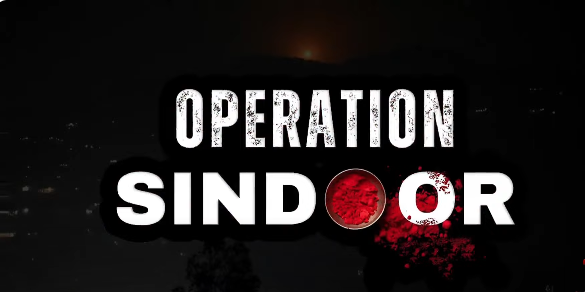
India and Pakistan Agree to Immediate Ceasefire After Days of Escalation
Tensions ease after US-mediated talks; both nations halt all military activity across land, air, and sea
Overview: A Step Towards Peace
After four tense days of military conflict that drew global concern, India and Pakistan have officially agreed to a full and immediate ceasefire, halting all military operations across land, air, and sea. The agreement took effect from 5 PM local time, bringing a temporary end to the hostilities that had recently intensified.
This significant breakthrough follows overnight negotiations, with strong mediation efforts led by the United States, particularly by President Donald Trump and his administration.
Ceasefire Confirmed by Both Sides
Key Highlights:
India’s Foreign Secretary Vikram Misri announced that both countries’ Director Generals of Military Operations (DGMOs) have agreed to stop all military actions.
Instructions have already been issued to ground forces to honour the agreement.
Another round of DGMO-level discussions is scheduled for 12th May at 12 PM.
“Director Generals of Military Operations (DGMOs) of India and Pakistan agreed that both sides would stop all firing and military action on land, air and sea from 5 PM,” said Misri.
US Takes Credit for Mediating Peace
US President Donald Trump, via his Truth Social platform, revealed the ceasefire before official confirmations from India or Pakistan.
“After a long night of talks mediated by the United States, I am pleased to announce that India and Pakistan have agreed to a FULL AND IMMEDIATE CEASEFIRE,” Trump posted.
“Congratulations to both countries on using common sense and great intelligence.”
Secretary of State Marco Rubio added that he and Vice President JD Vance were in active talks with top Indian and Pakistani leaders, including:
Prime Ministers Narendra Modi and Shehbaz Sharif
External Affairs Minister S. Jaishankar
Chiefs of Army Staff and National Security Advisors from both countries
Rubio confirmed that a broad dialogue would begin at a neutral location in the coming days.
India Maintains Firm Stance on Terrorism
Despite the ceasefire, India has reiterated its zero-tolerance policy towards terrorism. External Affairs Minister S. Jaishankar stated:
“India and Pakistan have today worked out an understanding on stoppage of firing and military action. India has consistently maintained a firm and uncompromising stance against terrorism in all its forms. It will continue to do so.”
Government sources emphasised that:
The ceasefire is conditional.
There is no change in diplomatic restrictions against Pakistan.
The Indus Water Treaty remains suspended.
India will remain vigilant and prepared to respond if Pakistan escalates the situation again.
Pakistan Confirms Ceasefire, Calls for Peace
Pakistan’s Deputy Prime Minister and Foreign Minister Ishaq Dar also confirmed the ceasefire, stating:
“Pakistan and India have agreed to a ceasefire with immediate effect. Pakistan has always strived for peace and security in the region, without compromising on its sovereignty and territorial integrity.”
The Trigger: Terror Attack in Kashmir
The conflict flared up after a deadly terrorist attack in Pahalgam, Jammu and Kashmir, often referred to as “mini Switzerland”. On 22nd April, gunmen opened fire on tourists, killing 26 people.
India blamed Pakistan-based terror groups for the attack—a claim Islamabad denied.
India’s Response:
Launched Operation Sindoor, targeting 9 terror bases in Pakistan and Pakistan Occupied Kashmir (PoK).
Pakistan retaliated with drone and artillery attacks, which India claimed were successfully repelled.
Global Community Welcomes De-escalation
The international community responded positively to the ceasefire agreement.
British Foreign Secretary David Lammy stated on X (formerly Twitter):
“Today’s ceasefire between India and Pakistan is hugely welcome. I urge both parties to sustain this. De-escalation is in everybody’s interest.”
What Lies Ahead?
Although the ceasefire brings relief, the path to lasting peace remains uncertain. India has made it clear that future engagements will depend on Pakistan’s actions, especially concerning terrorism.
For now, the region takes a breath of relief as both sides momentarily step back from the brink of a larger conflict.
Sources:
Indian Ministry of External Affairs
Pakistan Ministry of Foreign Affairs
Donald Trump on Truth Social
Statements by Marco Rubio and JD Vance on X
British Foreign Office
